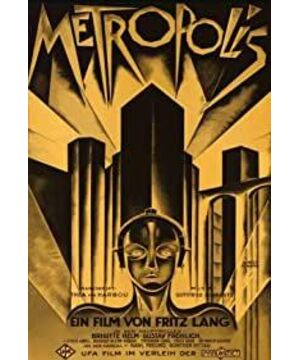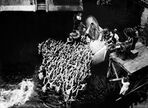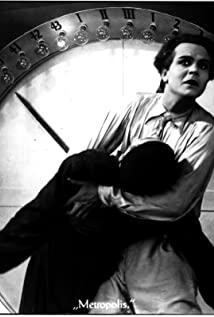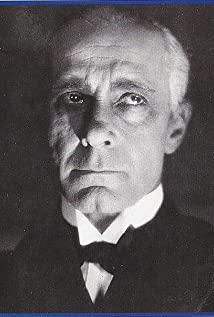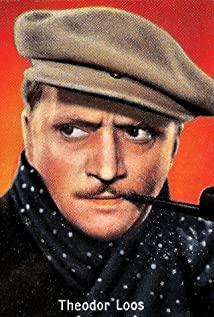The film was released in 1927, and the Nanchang Uprising broke out. It is hard to imagine that two events belonged to the same time.
The film constructs a utopia in which the inventor and ruler of the metropolis exploits workers, who live underground, beneath sewer pipes, and end up flooded.
The Metropolitan Tower of Babel is towering, and the city built with natural special effects is reminiscent of the city shots in "Ghost in the Shell".
The poor work 10 hours without a break, the workers are alienated by machines, and we are needed here (machines). The mental workers at the top are also unhappy, and they also have no time for rest due to high productivity. The biblical story is integrated into the future of science fiction. The blind woman Maria comforts the hearts of many workers under the ruins of the cross, waiting for the appearance of the "adjuster" (savior).
The son of the city dictator fills the role, and the blind woman's "This is your brother" is astounding when the garden jokes. (There is a question here, they can't go to the underground world, so how did the blind girl and a large group of children come up). In short, like the saints in the Bible, the Regulator dreams of the oracle, has followers and dies in his place. The scene of blind girls and children surrounding the alarm is very similar to Noah's Ark. (It feels very deliberate, the workers left their children)
In the end, the Doctor released Pandora-Robot through technology, causing the destruction of the Metropolis and the Tower of Babel, just like the story in the Bible.
Of course, if there is no necessary reason to watch this movie, the concept in the movie has already been accepted by us, the special effects of the native method are not too interesting, the narrative techniques and shots are quite satisfactory, not to mention that this film is still a silent film.
View more about Metropolis reviews


